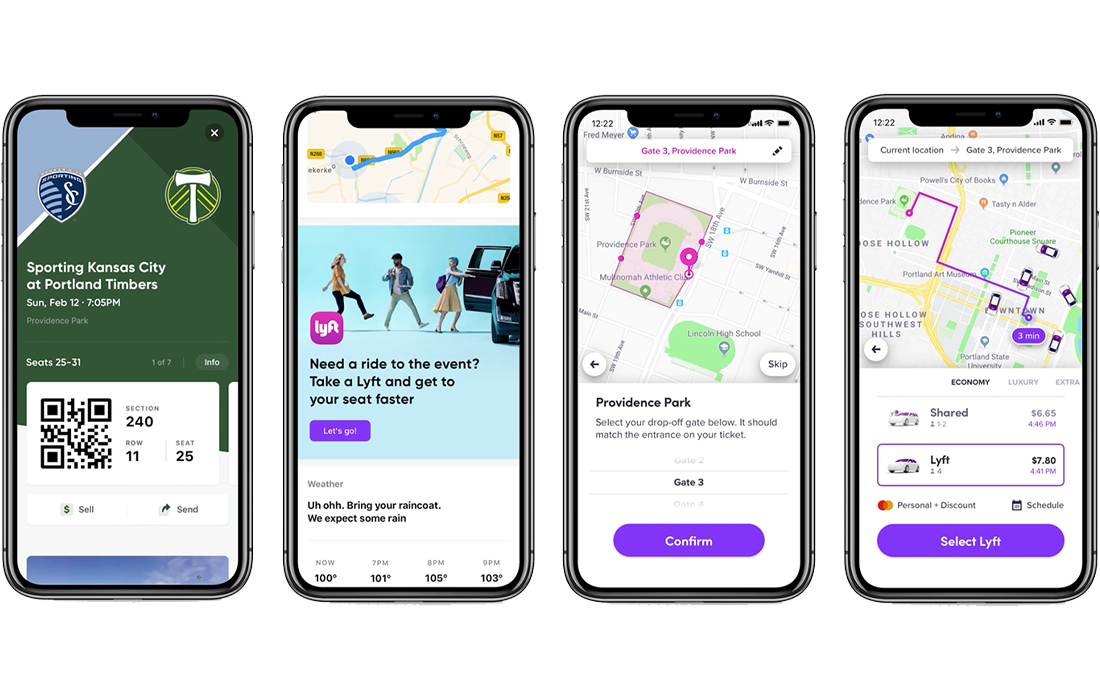
Smarter thinking about mobile ticketing
Mobile ticketing is convenient for the customer and can open up new business opportunities. Innovations in the US signal a way forward for the UK, suggests James McClure.
It wasn’t that long ago that smartphones were a novelty. In fact, just seven years ago only half of the UK adult population had a smartphone, according to Consultancy.uk. By 2017 that number had risen to 85%, and we can assume that it is beyond 90% today.
An increasing number of purchases are made on mobile phones and these purchases are not just small orders
And yet much of the ticketing approach in arts organisations across the country has failed to keep up. It’s time that these organisations start to think seriously about how the smartphone can have an impact on both ticket purchasing and the event experience.
The mobile approach
We’ve already seen some movement in the ticketing industry in the UK, but it has mainly been focused on the purchasing experience. No venue should still only be thinking about the desktop web user experience any more. An increasing number of purchases are made on mobile phones, and these purchases are not just small orders. Everything from mortgages to high-end jewellery can be purchased on a mobile device these days.
But the purchase experience is just the start of where mobiles can come into play. Mobile ticketing is not a new concept, but its potential has not yet been fully realised.
In the US, many sports teams have moved to a fully mobile ticket approach. The reasons are plentiful, both for the team and for the fans:
- The team: For the team, mobile ticketing gives them more data. When a physical ticket changes hands, there is no way for a venue to know the identity of that new ticketholder. This means there is no way for the venue to know who is on their site or in their building, and more importantly, no way for them to possibly promote or sell to that user, who is already clearly interested in their product.
- The fans: For the fan, a mobile ticket can be so much more than just a ticket. The product can be extended to include various benefits alongside the ticket, introducing additional fan features and revenue streams. All of this ultimately improves the fan experience, and means more fans are coming back again and again.
Taxi rides
This approach is as relevant to live entertainment as it is to sport. For example, if theatre attenders take taxis home after a show, you can give them the opportunity to easily book a taxi, right from their ticket.
Last year, we partnered with cab company Lyft to make it easier for ticket buyers to book taxis to and from theatres, arenas and other live entertainment venues. Passengers who request a Lyft ride through the SeatGeek app automatically see their seat location featured in the Lyft app so that the driver drops them off as close to their designated entrance as possible.
Another partnership, with ride-sharing service Cargo, enables passengers using the Cargo mobile app during their journey to access exclusive deals and discounts. All they need to do is enter their driver's code into the Cargo mobile menu to see ticket availability, then pay with a credit card or mobile wallet.
Future direction
Not every fan is going to want a mobile ticket, and this change won’t happen overnight. But by moving in a mobile direction, venues can collect audience feedback and fine-tune the experience to give them what they ultimately want – at the same time driving future sales.
It’s undeniable that mobile is here to stay, and those that adapt in a smart way will have a leg up on the competition.
James McClure is the International General Manager at SeatGeek.
seatgeek.com/uk
This article is part of a series of articles sponsored and contributed by SeatGeek.
Join the Discussion
You must be logged in to post a comment.